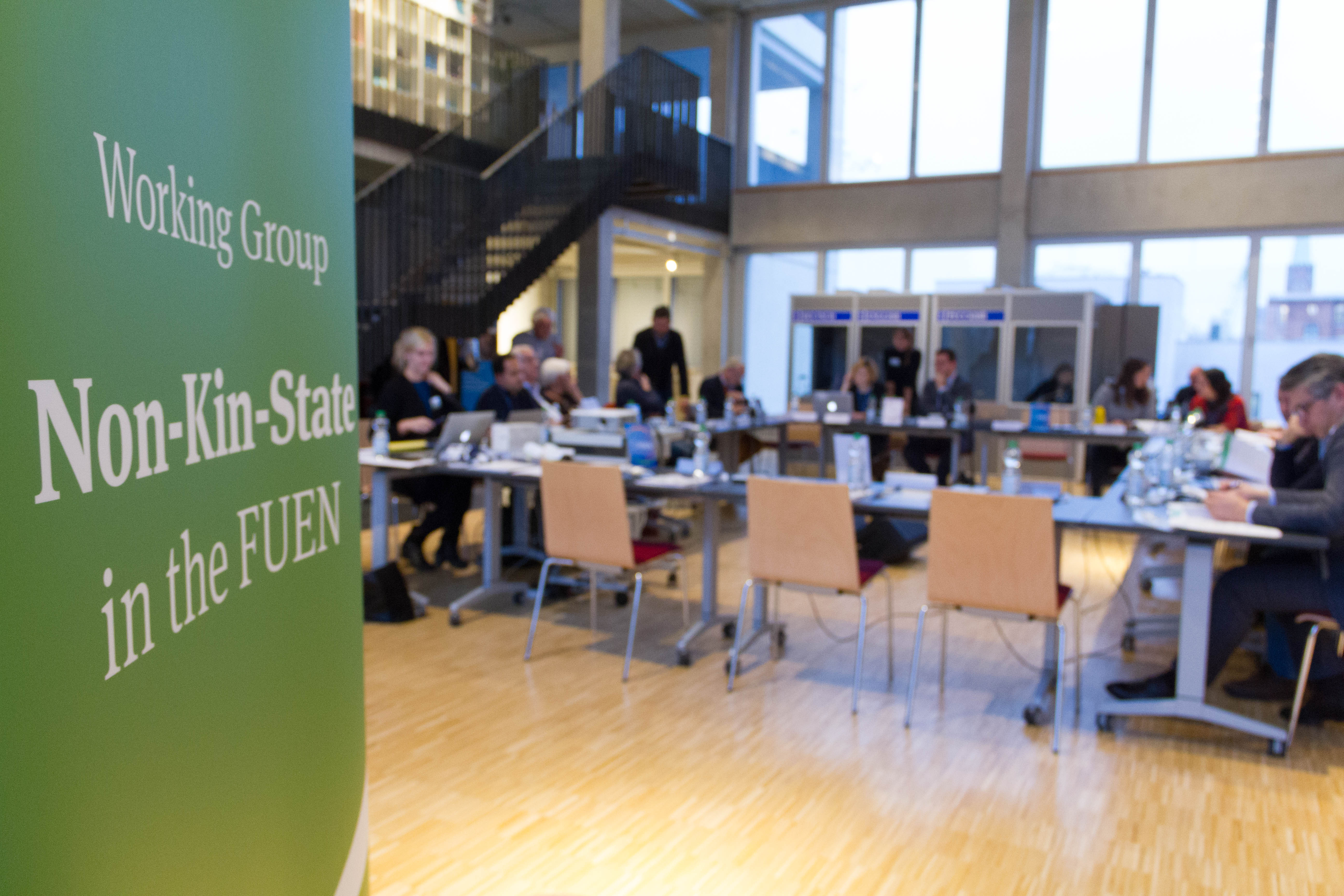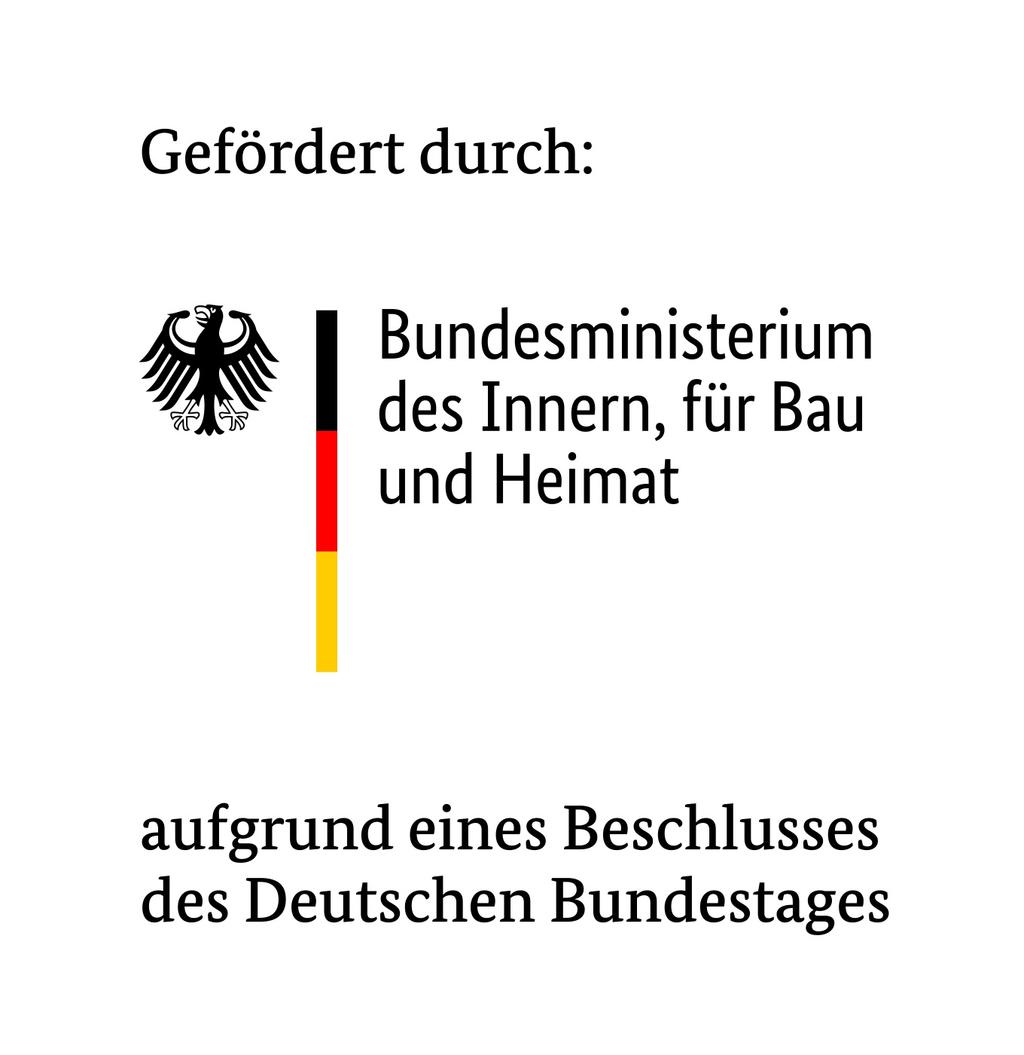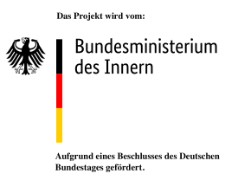
Annual Meeting of the WG Non-Kin-State in Berlin, 2018
From 26 to 28 November 2018, the second annual meeting of the minorities without a kin-state is going to take place in Berlin. The meeting will address the topics "Media and Digitisation", and also highlight the culture, languages and institutions of the German Sinti and Roma.
During the work sessions at the Documentation and Culture Centre of German Sinti and Roma in Berlin, the working group wants to focus on the strengths and successes of the minorities without a kin-state. Following the concept of solidarity, the members will exchange best-practice examples on the field of media and digitalisation, in order to help each other to find solutions to problems and challenges their communities are facing.
In addition to the work sessions, a meeting with Ms. Filiz Polat (Bündnis 90/ The Green Party), member of the German Bundestag, is scheduled for the second day of the event. The delegation will not only use this opportunity to report on the minorities’ concerns and activities, but also learn more about the political work of Ms. Filiz Polat, who is also a member of the Advisory Committee on questions of the Frisian ethnic group and the German Sinti and Roma.
The event will conclude with a visit to the monument for the Sinti and Roma who were killed under the nazi-regime and with a visit to the European Roma Institute for Arts and Culture (ERIAC). The ERIAC promotes the exchange and cooperation of European artists and intellectuals in order to break down prejudices and make the culture and history of the Roma in Europe more visible.
The Non-Kin-State Working Group was founded by the FUEN in 2017, and aims to give a voice to the minorities without a kin-state on a regional, national and European level. In the annual meetings, the working group’s members aim to exchange experiences and discuss solutions to the various problems and challenges of their minorities, like the gradual disappearance of their small languages and cultures, discrimination, assimilation or division of their communities.
Minorities without a kin-state discussed media and digitalisation at their annual meeting
Media and digitalisation as a way to counteract the disappearance of small languages were the main topics of FUEN’s Non-Kin-State Working Group’s second annual meeting, which took place between 26-28 November in Berlin. 14 different minorities without a kin-state from 11 European countries were represented at the meeting, where a special attention was given to presenting the culture, languages and history of German Sinti and Roma. The members reported on each of their minorities situation, achievements and challenges since the last annual meeting in Rome, November 2017, and also welcomed new members like the Raetho Romansch from Switzerland, Scanians from Sweden and Pomaks from Bulgaria.
“Minority language is not only the language of the heart: it is also an economical question” – said one participant during the presentation of best practices in the field of media and digitalisation, as it is indeed important to consider the financial aspects in order to guarantee the sustainability of projects. The question of state funding was also discussed, as some of the minorities present at the meeting lack the official recognition of the state and also lack state support, which can be overcome by the engagement of foundations and volunteers.
The participants had the chance to experience first-hand some very ambitious local projects, like the hosting institution, the Documentation and Cultural Centre of German Sinti and Roma, a place of not only documentation, but also of encounter and dialogue, that highlights the rich culture of the Sinti and Roma through lectures, exhibitions, film screenings, concerts and excursions. The European Roma Institute for Arts and Culture (ERIAC), which runs completely under Roma leadership and acts as an international hub that strives to promote activities of hundreds of Roma organisations, intellectuals and artists was also presented. The ERIAC aims to form multilateral initiatives and regional alliances, and to connect them with the policy makers and leaders of the different national and European levels. The institute gives space to a contemporary art gallery and an educational program which is open to the public.
The members of the working group had a meeting with Member of the German Parliament Filiz Polat (Bündnis 90/ The Green Party), a member of the Advisory Committee on questions of the Frisian ethnic group and the German Sinti and Roma. She had an open dialogue with the working group and stressed the importance of the minorities‘ participation in political developments and decisions.
The annual meeting ended with a think-tank on future plans, in which the working group‘s members agreed on increasing the public/ political visibility of the minorities without a kin-state by reporting on their respective issues and activities in their media and seeking each other‘s support. The group agreed that questions of minority identity and the preservation and reanimation of their languages should be a core topic for the future meetings.
Please follow the link to see the photo-gallery of the meeting: https://www.flickr.com/photos/fuen-fuev/albums/72157676176185188



